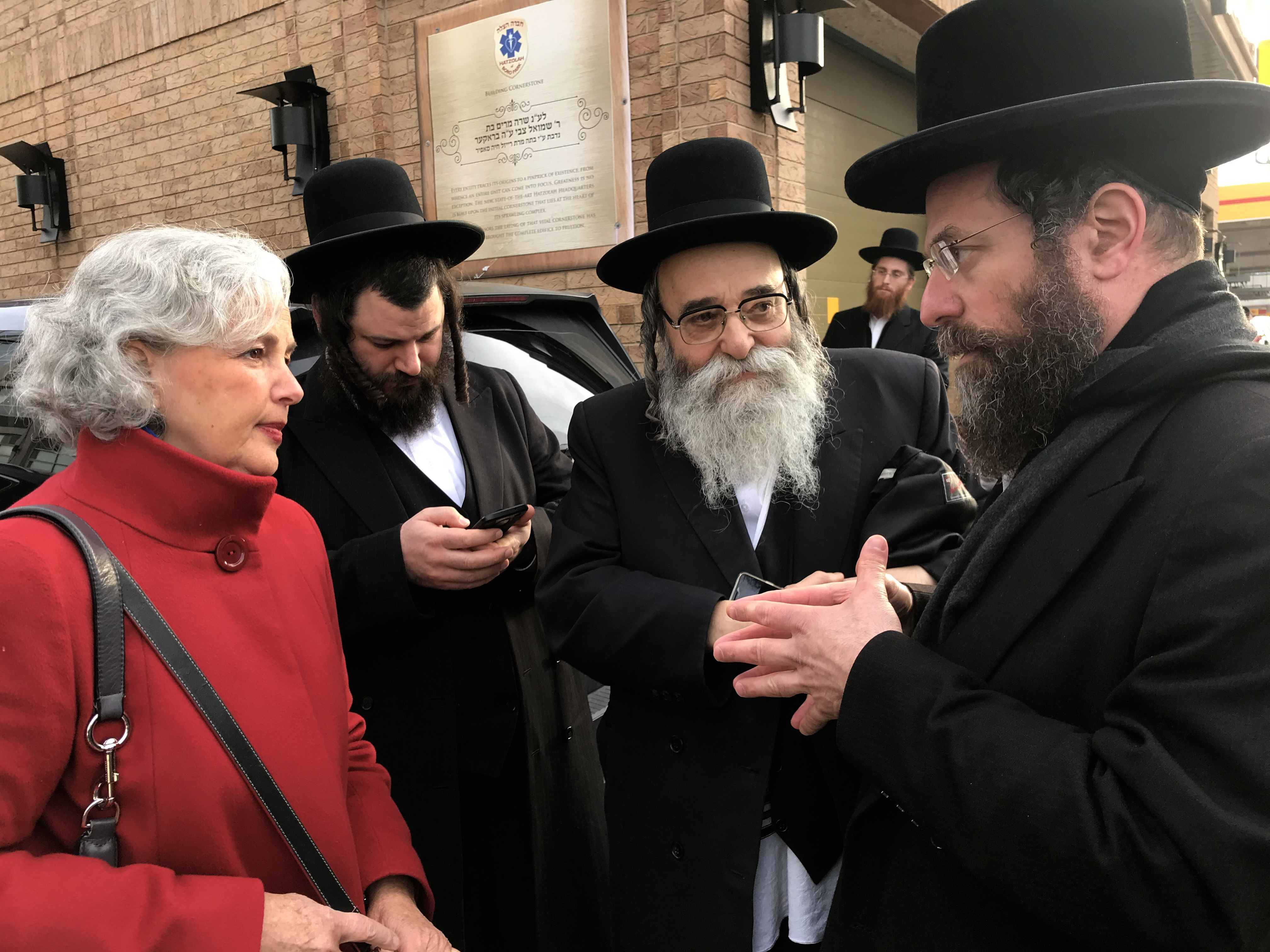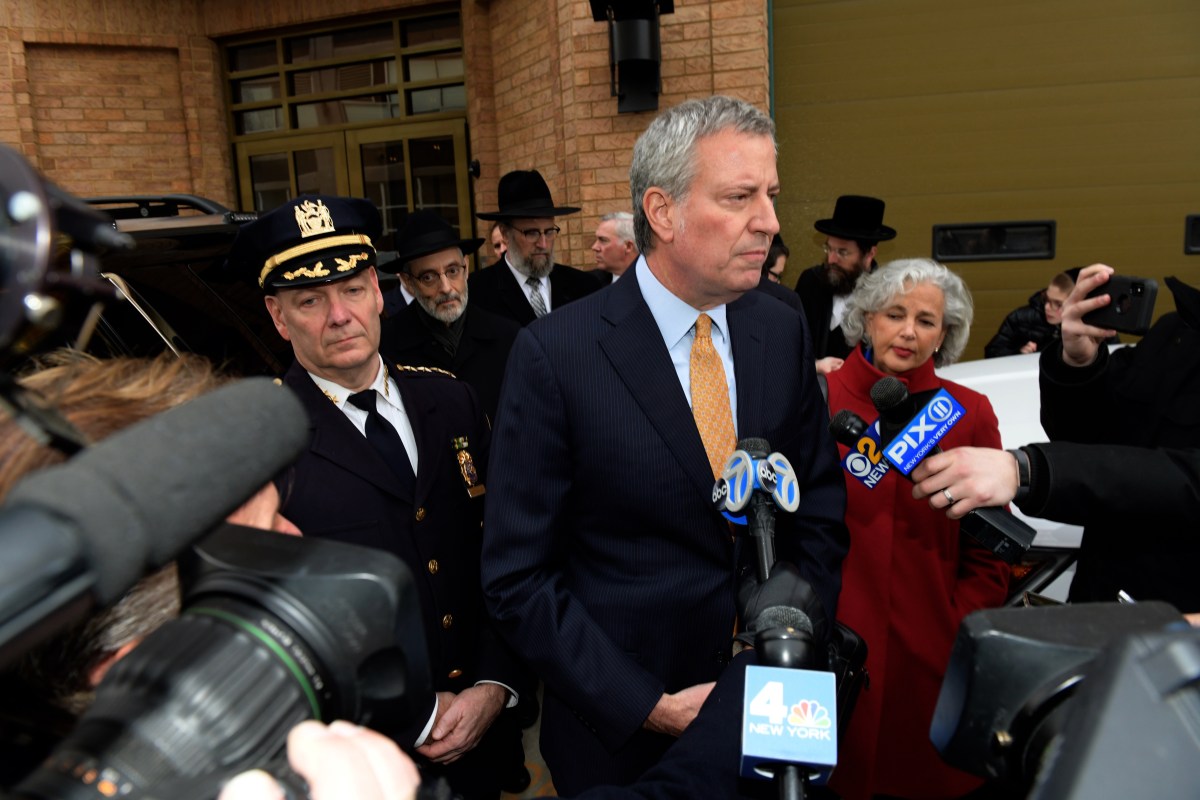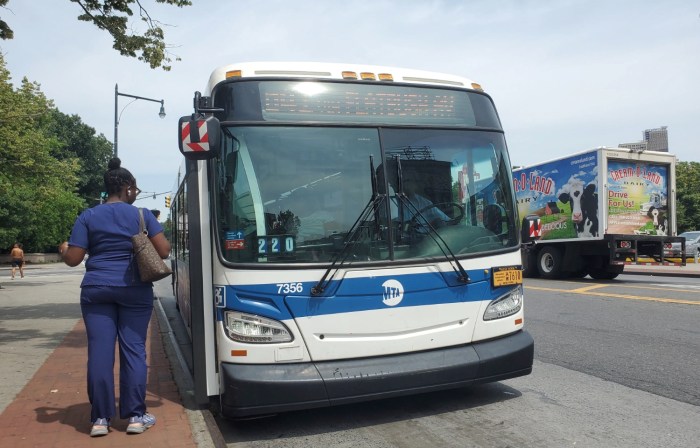Leaders of Jewish communities across Brooklyn met with Mayor Bill de Blasio on Thursday and urged him to support changes to toughen the recently-enacted bail reform law — and he seemed to agree with them.
De Blasio held a private talk with representatives of Jewish communities across Brooklyn at the Hatzalah of Boro Park headquarters in the wake of a recent rash of anti-Semitic crimes across the boroughs. A number of the participants told members of the press afterward that they believe the new state bail reform law may have emboldened the bigots involved in the attacks.
The State Legislature, along with Governor Andrew Cuomo, approved legislation last year changing bail restrictions for those accused of misdemeanors and minor felonies, with many being sprung from jail with little to no bail. Meanwhile, de Blasio and the City Council also approved plans last year to shut down Rikers Island and further lower the jail population.
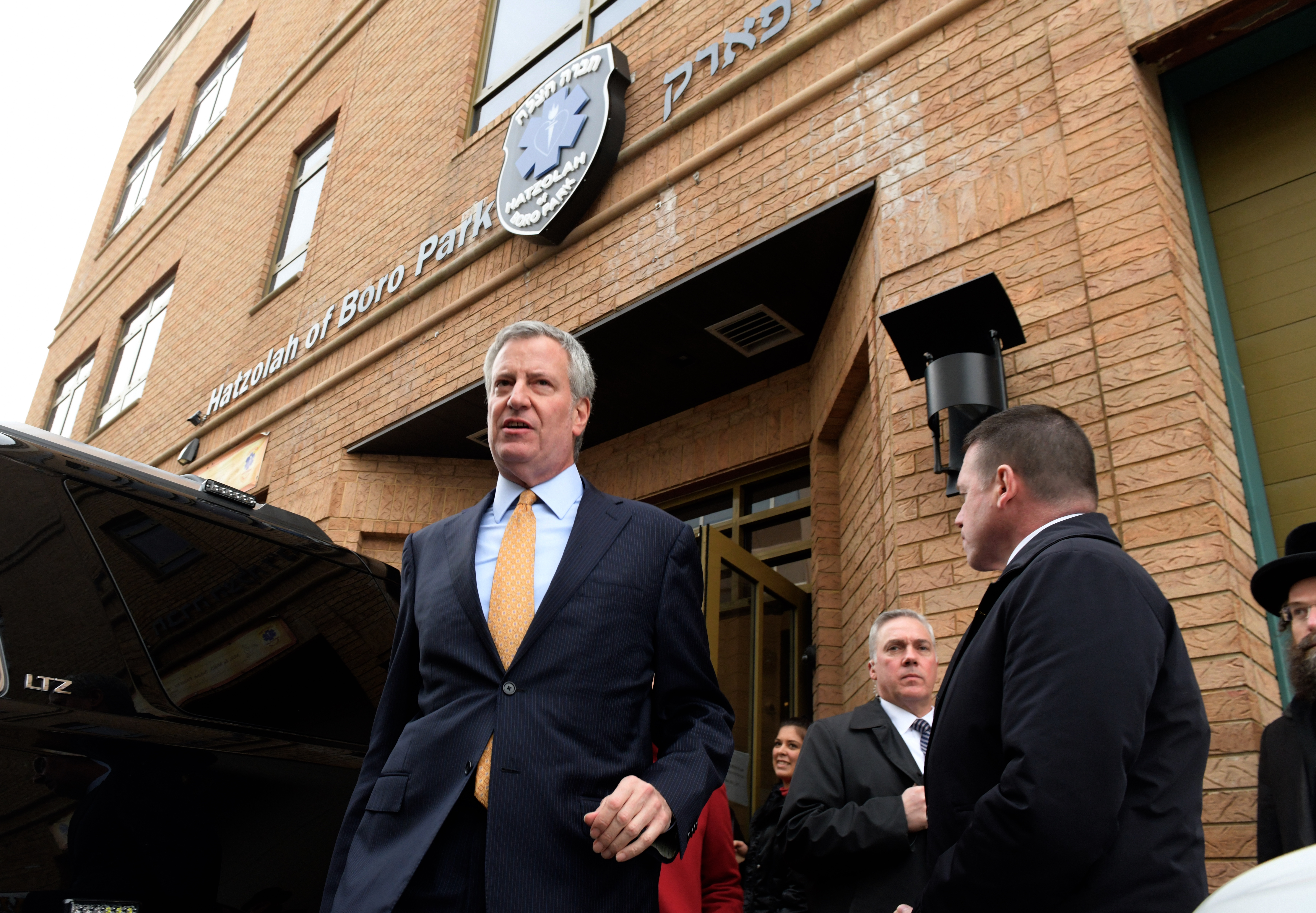
Rabbi Chanina Sperlin, executive vice president Crown Heights Jewish Community Council Governmental Affairs, said he was confident that the mayor will bring more police to protect houses of worship and schools, but there’s concern about policies which more easily set offenders free before trial.
“I know the mayor 20 years, and you gotta give a person a chance, but we do need a plan on how to deal with these hate crimes,” Sperlin said after the meeting. “We must change the laws of bail reform. If we don’t make changes to bail reform, this will continue and continue.”
Sperlin said the mayor agrees that bail reform needs to occur.
“The police must deal more closely with the community. We need protection to get these people off the streets and bail reform will help,” Sperlin said.
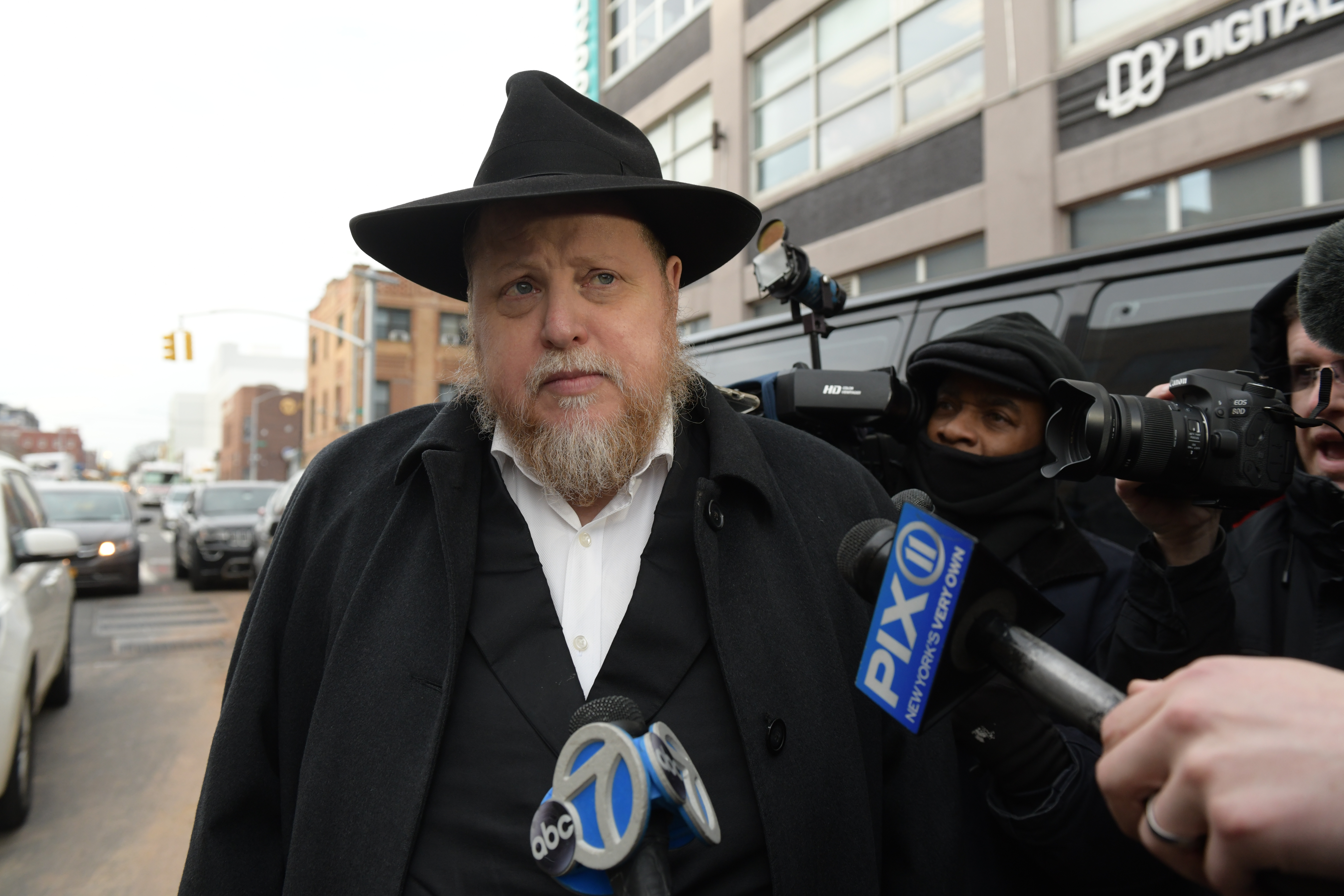
Leon Goldenberg, a community leader who sits on the boards of numerous Borough Park organizations, was worried that the hate crimes would continue as a result of the bail reform law enacted on Jan. 1.
“There are a lot of people who recognize there are laws that were created with good intent have gone overboard, and that’s one of them,” said Goldenberg, who added that more must be done on a myriad of issues.
Goldenberg said the mayor agreed that hate crimes “must be treated differently than other assaults – but the community is frustrated and concerned about this that judges should hold these people, not let them out.”
“The problems are not going away because we had a meeting,” Goldenberg said. “Some of the problem is clearly social media and these attacks are felt by everyone in the community. We will not walk without yarmukles or beards, so we are very obvious targets.”
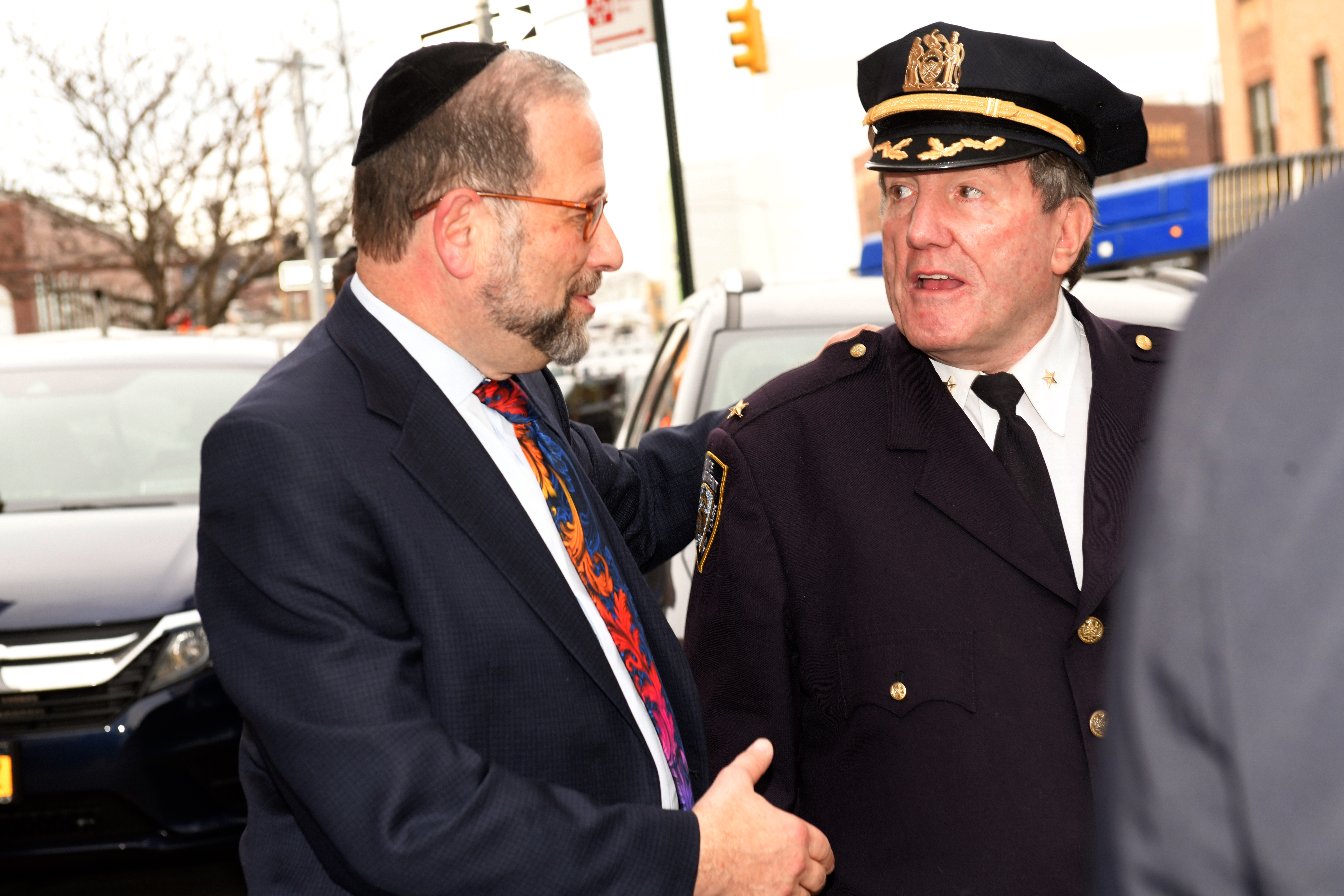
Rabbi Daniel Niederman of the Williamburg community said he is optimistic that the mayor can find more answers.
“If things will be kept going on and we keep working with it, we will see better days,” Niederman said.
After the meeting, de Blasio told members of the press he believes criminal justice reform is still heading in the right direction — but conceded the bail reform law must be tweaked.
“You have people going to trial, getting whatever penalty that they deserve and paying the price and getting jail time, but we think there is real agreement that the bail reform law needs to be amended,” Mayor de Blasio said. “There is a chance for the legislature to get it right. They did some very good reforms, but there are things that need to be done, including empowering judges to determine if someone poses a threat to the community and give the judges power to act upon that and hold someone in. I have felt that for the last two years, and feel even more strongly now and will work with Albany to get this done.”
While pledging the city will do what it can to keep every one safe, de Blasio acknowledged the atmosphere of fear in Jewish communities and across the city due to the recent anti-Semitic attacks that have occurred.
“There is a real sense of deep fear that anti-Semitism is growing and taking on a more violent form here and all over the country and how do we stop that,” de Blasio said. “The community is very appreciative of the NYPD but they want to see more. … It will take a lot more police presence and take a lot of work at the grass roots to change hearts and minds. We have to get to the point where Jewish people don’t have to worry about walking down the streets.”
